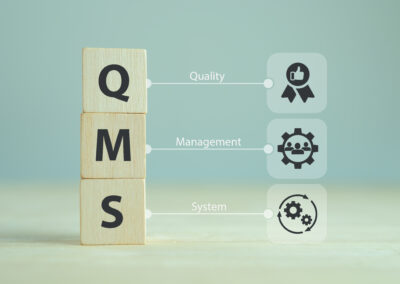Introduction
Regulatory compliance is essential for operating a life science business, whether they are in pharma, vet med, food safety, med devices, or other industries. Any regulatory challenge impacting safety or efficacy of a product can present a significant problem for success in the market. Here are some common compliance pitfalls and what you can do to avoid them, reduce risk, and improve outcomes:
Pitfall 1: Lack of Communication
Communication is key. When members of a company are not effectively communicating with one another about challenges, or if company leadership does not address the concerns of different teams, it leads to ineffective business operations. Poor communication delays addressing problems which can compound and lead to inadequate documentation, missed regulatory updates, not meeting KPIs, drowning in CAPAs, and errors in production processes. This increases the chances of failing an FDA audit, product recalls, and even legal actions. To avoid this, plan regular cross-departmental meetings with leadership and a clear agenda to ensure effective communication.
Pitfall 2: Inadequate Quality Management Systems (QMS)
Quality is everyone’s responsibility. A weak or outdated QMS can make a company non-compliant with newer regulations. If a QMS is not up to date, or not followed, this could put the company at risk for problems with the FDA. The QMS should be a growing document that can mature with company processes and regularly checked for compliance with regulatory requirements and emerging guidelines. A good QMS can help streamline processes, reduce errors, save money, set company-wide standards, and produce consistent products [1]. Employees should undergo routine QMS training to ensure everyone is on the same page and following the company’s QMS procedures. To avoid this, consider hiring a consulting firm such as EMMA International to help develop a robust QMS.
Pitfall 3: Insufficient Training and Awareness Among Staff
When employees aren’t trained to follow QMS procedures and are not aware of the importance of the QMS, this can lead to a lackadaisical attitude about CAPAs, change control, document control, nonconformances, risk management, and irritation with inspections. This is often how non-compliance occurs. It is crucial to train employees on QMS procedures and show them how their role fits into compliance. To avoid this, consider hiring QMS training experts such as EMMA International to train all team members.
EMMA International can help develop your QMS, quality and regulatory training, and manage changing regulations for life sciences companies. Give us a call at 248-987-4497 or email us at info@emmainternational.com to learn more about how EMMA International can take the stress out of quality and regulatory compliance!
[1] ASQ (2024) What is a Quality Management System (QMS)?, Retrieved on 5 November 2024 from: https://asq.org/quality-resources/quality-management-system





